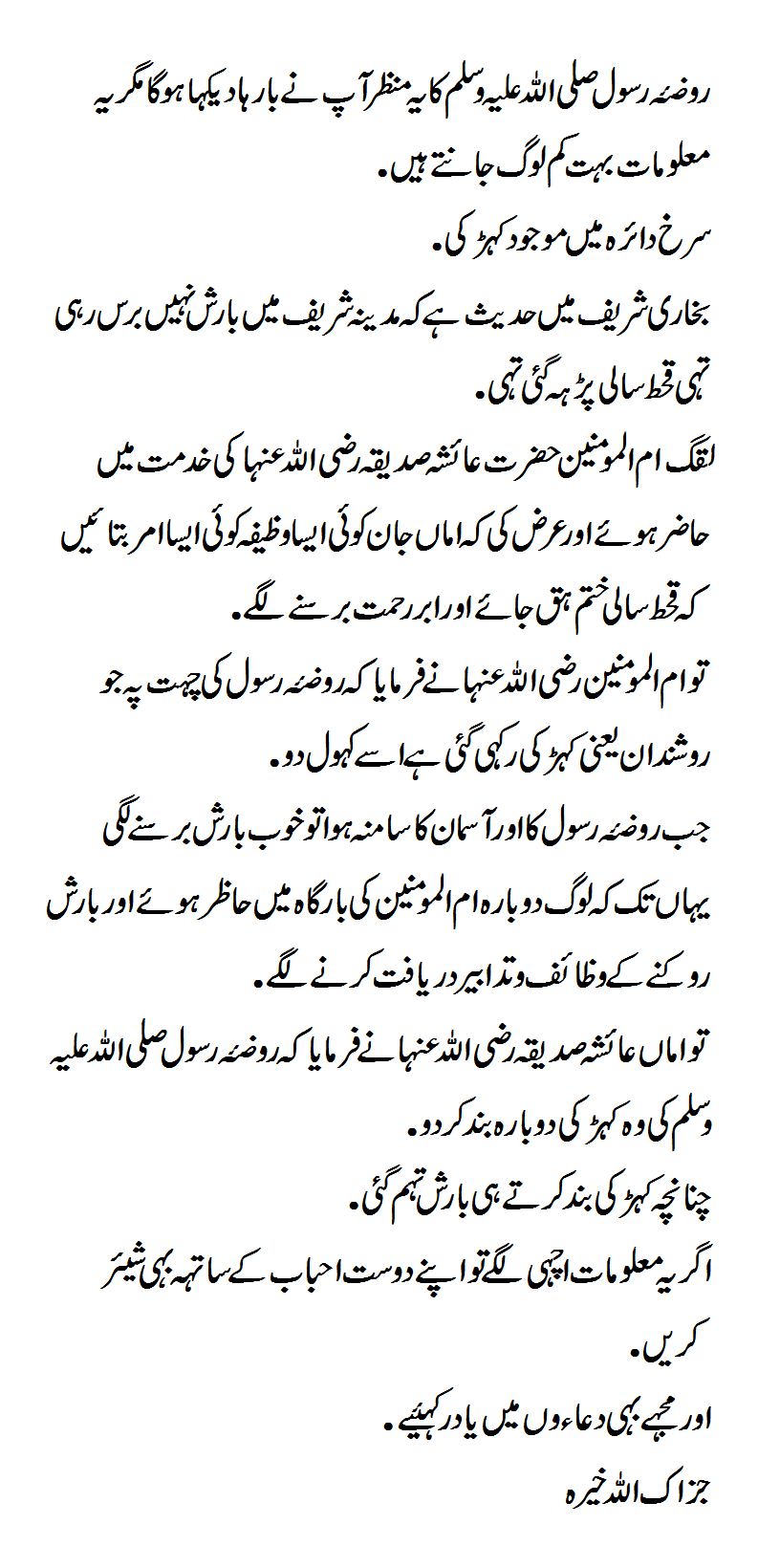The Prophet ﷺ is buried in the Sacred Chamber, along with two of his most faithful companions and the first two caliphs of Islam, Abu Bakr al-Siddiq and Umar ibn al-Khattab. The Sacred Chamber was once the house (hujra) of his wife Aisha – the house in which he was staying in at the time of his physical demise. Today, it forms part of the Masjid Nabawi complex and is the most venerated tomb in the world.
The graves are surrounded by several walls which have no windows or doors and thus can’t be seen or accessed.The Sacred Chamber, also referred to as the Sacred Prophetic Chamber (Arabic: الحجرة النبوية الشريفة; al hujratu n-nabawīyatu l-sharīfa) or Prophetic Compartment
(Arabic: المقصورة النبوية; al-maqsūratu n-nabawīya) is located in the south-eastern section of Masjid Nabawi. The chamber is demarcated by gold and green copper and iron railing.
The northern and southern sides of the chamber are 16 metres long and its eastern and western sides are 15 metres long. The walls of this chamber were first built in 678 AH / 1282 AD by al-Zahir Baybaras V and were originally three metres high and made of wood.
In 886 AH / 1481 CE, after the second great fire of Masjid Nabawi took place, Sultan al-Ashraf Qaitbay V replaced these walls with the railing that we see today. Part of the Rawdah is also included within this area.
